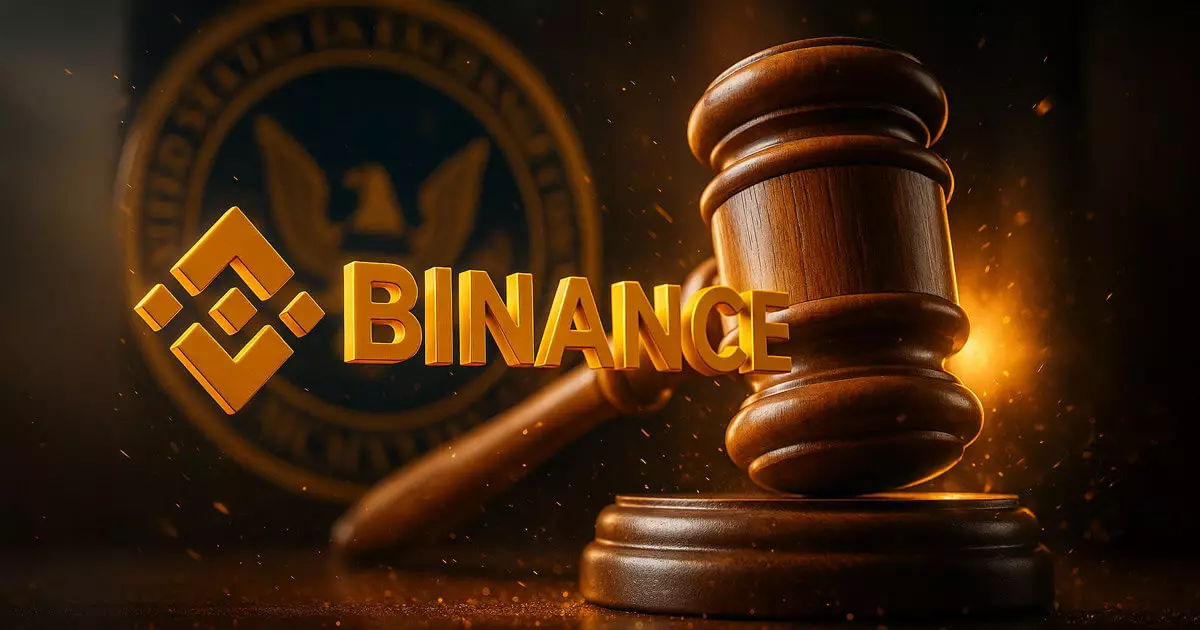In a striking and somewhat unexpected legal move, the U.S. Securities and Exchange Commission (SEC) officially sought to dismiss its civil complaint against Binance and its founder, Changpeng Zhao, on May 29, throwing a wrench into the ongoing narrative of rigorous financial regulation. This decision, rather than merely a procedural formality, shines a spotlight on the excessive regulatory measures that have evolved around cryptocurrency. The SEC’s sudden change of heart highlights the problematic landscape of regulatory overreach, which has often stifled innovation in an industry that is still finding its footing.
The legal tussle began in June 2023, when the SEC accused Binance of operating as an unregistered securities exchange, broker-dealer, and clearing agency. These claims raised eyebrows across the crypto community and beyond, conjuring fears of an era of stringent oversight that could cripple burgeoning tech companies. Critics argue that such regulatory actions are less about safeguarding investors and more about the SEC flexing its muscles in a domain where it often feels uncertain.
Crypto’s Resilience: A “Huge Win”
Binance’s jubilant reaction to the SEC’s dismissal—calling it a “huge win for crypto”—suggests that the platform views the SEC’s retreat as a validation of its operational practices. The firm celebrated this moment as a clear indication that the narrative around crypto is shifting. While Binance continues to operate under a consent decree requiring transparency and regular audits, the dismissal of charges offers an important signal that aggressive regulatory tactics may not play out as government agencies anticipate.
What stands out in this situation is the acknowledgment from industry leaders that innovation in the U.S. is back “on track.” This reflects a broader sentiment within the center-right milieu, advocating for less heavy-handed intervention from regulatory bodies that often lack a comprehensive understanding of the rapidly evolving digital asset space. Regulatory agencies must adapt to the evolving landscape rather than impose outdated frameworks that stifle growth.
The Follow-Up: The SEC’s Diminishing Power
The dismissal of the Binance case is emblematic of the shifting tides in the regulatory sphere, particularly for entities associated with technology and innovation. The SEC’s previous heavy-handed approach has often led to criticism of its “regulation by enforcement” posture. This dismissal might serve as a wake-up call for the SEC, indicating that the time may have come for a more balanced approach, one that allows for dialogue and sets clear frameworks rather than chasing companies under the guise of “protection.”
Commissioner Hester Peirce’s involvement in a new SEC crypto task force hints at a potential institutional pivot towards understanding and accommodating the needs of the cryptocurrency market. Her recognition of the necessity for regulatory frameworks to evolve with the technology suggests a promising future where rules are proactive rather than reactive.
The lack of a monetary settlement following the dismissal raises further questions about the SEC’s long-term strategy. Rather than establishing damaging precedents, it appears that the agency might be retreating from a battlefield where it realizes the inherent limits of its jurisdiction and powers.
Looking Ahead: A Call for Balanced Governance
What is particularly alarming, yet fascinating, about this case is that the legal battle between Binance and the SEC is just one episode in a broader narrative of governmental oversight in rapidly growing industries. As tech innovations reshape global economies, regulatory bodies must evolve or risk becoming impediments to progress. The court’s dismissal indicates a need for agility over rigidity, and it could serve as a clarion call for other tech-forward industries facing similar existential threats from regulatory bodies.
Supporters of center-right liberalism argue for the necessity of a governance model that is flexible enough to foster innovation while ensuring adequate protections for consumers. This balance is crucial in a landscape characterized by volatility and rapid change. As we watch the tinderbox of innovation ignite across various sectors, it’s imperative that stakeholders advocate for frameworks that harmonize growth with accountability.
The SEC’s failure to sustain its charges against Binance may well become a pivotal moment, heralding a more collaborative relationship between regulators and innovators in the financial ecosystem. The pressure is now on the SEC to clarify its role, adjust its methods, and ultimately embrace the innovative spirit permeating the cryptocurrency landscape.


Leave a Reply